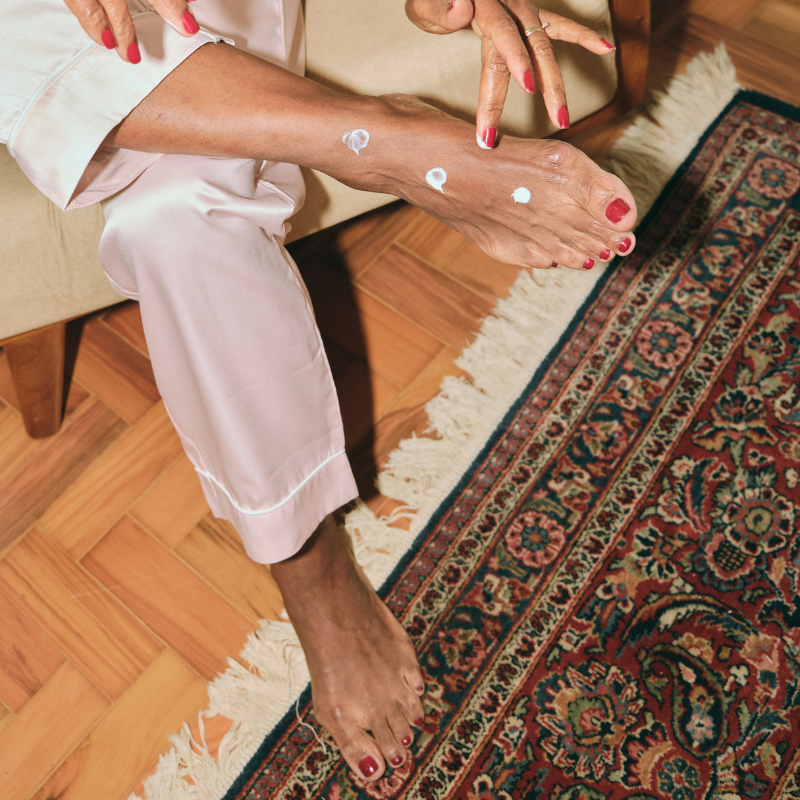Posted date on Jul 14, 2023
The monsoon is here and it's time to prepare ourselves for the showers that bring both joy and a fair share of challenges. With these basic foot care recommendations to prevent your feet from fungal illnesses and combat unpleasant odours, you can live the monsoon season with confidence and care.
So, let's get started and learn about the foot care practices that will have you dancing in the rain!
> Understanding Fungal Infections & Foot Hygiene

Fungal infections are common during the monsoon due to the warm and moist conditions that fungi thrive in. To protect our feet, it's crucial to understand the causes and types of fungal infections.
Fungi, such as dermatophytes and yeast, can enter the skin through small cracks or cuts, leading to conditions like athlete's foot and fungal nail infections. These infections can cause itching, redness, scaling, and even pain.
Furthermore, maintaining proper foot hygiene is paramount to ward off fungal infections. During the monsoon, it's important to wash your feet regularly with warm water and a mild cleanser, paying extra attention to the areas between the toes. After washing, thoroughly dry your feet, especially the spaces between the toes, as moisture can promote fungal growth. Avoid harsh scrubbing, which can damage the skin, and instead opt for gentle patting to ensure your feet are completely dry.
> Nail Care

Neglecting nail care can increase the risk of fungal nail infections. To protect your nails, trim them regularly, ensuring they are straight across and not too short. Avoid sharing nail clippers or files, as this can transfer fungal spores. Keeping your nails clean and dry is essential. Consider using a nail brush to clean under the nails, and if you frequent public places like swimming pools or gyms, it's advisable to wear sandals or flip-flops to minimise exposure to fungi.
> Drying and Moisturizing & Antifungal Measures

Proper drying and moisturising are key components of foot care in the monsoon season. After being exposed to rainwater, thoroughly dry your feet, including the areas between the toes, as moisture can provide a breeding ground for fungi. If your feet tend to be dry, it's important to moisturise them using a foot cream or lotion. However, avoid applying moisturiser between the toes, as this can create excessive moisture. Strike a balance between keeping your feet adequately moisturised and preventing excessive dampness.
However, despite our best efforts, fungal infections may still occur. When this happens, it's important to know about antifungal measures that can help combat these infections. Talcum powder can help keep your feet dry and prevent fungal growth. Additionally, antifungal creams or sprays may be recommended to treat fungal infections. If you notice persistent or worsening symptoms, it's crucial to consult a dermatologist, as they can provide a proper diagnosis and prescribe suitable treatments.
> Tackling Foot Odour

Foot odour can be an embarrassing problem during the monsoon season. The combination of sweat and moisture can create an ideal environment for bacteria to thrive, resulting in unpleasant odours. To tackle foot odour, prioritise foot hygiene by washing your feet regularly and thoroughly drying them. These remedies can help neutralise odour-causing bacteria and keep your feet smelling fresh.
> Choosing the Right Footwear

Selecting appropriate footwear is crucial to maintaining foot health during the monsoon. Choose open-toed or breathable shoes that allow air circulation and prevent excessive sweating. Avoid tight or non-breathable footwear, as this can create a moist environment ideal for fungal growth. Additionally, consider wearing moisture-absorbing socks, preferably made of natural fibres like cotton, which help keep your feet dry and comfortable.
By following these foot care tips, including understanding fungal infections and maintaining proper foot hygiene, you can protect your feet from discomfort and potential health issues. Remember to pay attention to nail care, choose the right footwear, and practise effective drying and moisturising techniques. Additionally, be aware of antifungal measures and consult a dermatologist near you if needed.





